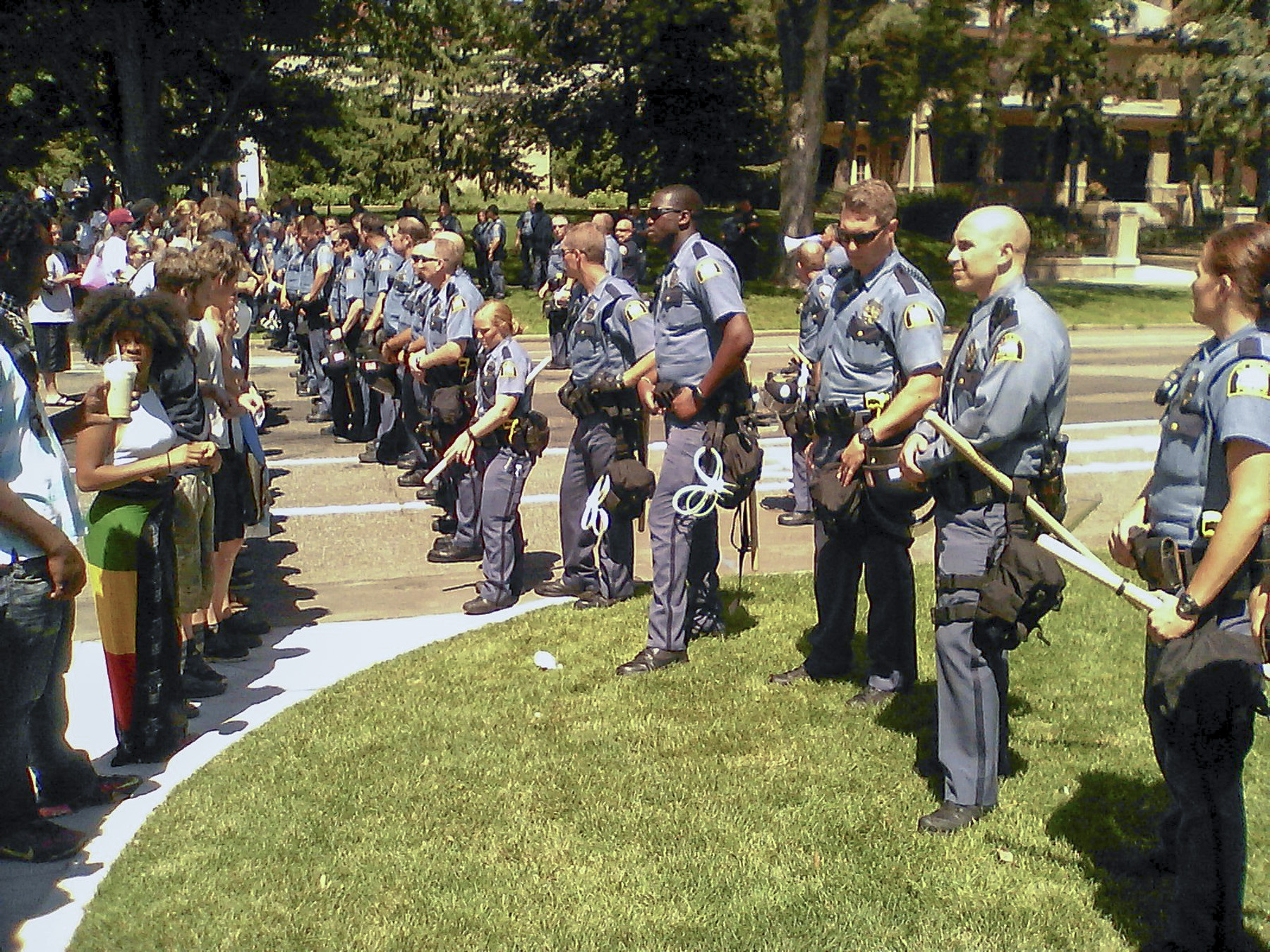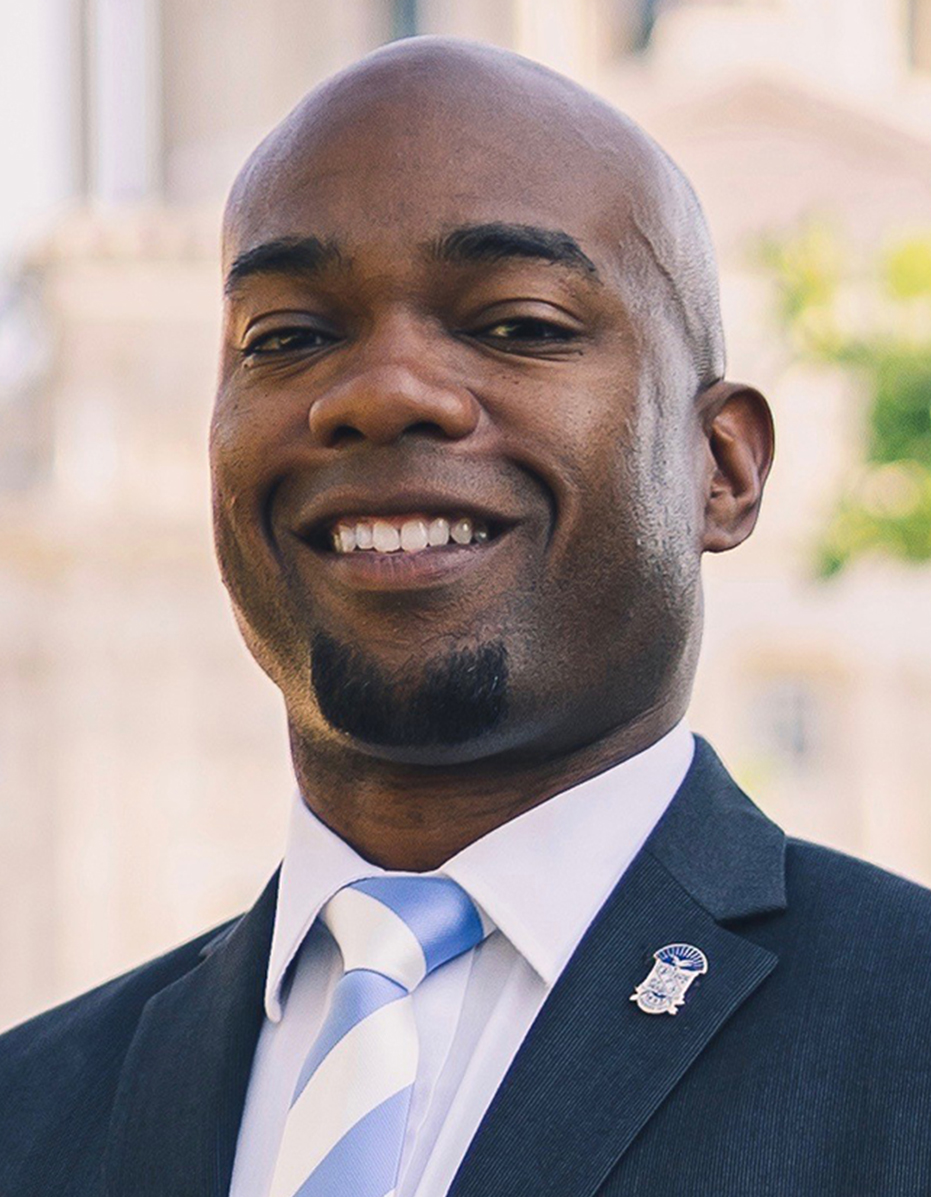Legislation to exclude white supremacists from police ranks advances in House

Ongoing criminal investigations into the January incursion of the U.S. Capitol have revealed dozens of rioters who are current or former law enforcement officers with ties to, or are members of, white supremacist groups, says Rep. Cedrick Frazier (DFL-New Hope).
He doesn’t want people of that mindset keeping Minnesotans safe.
Frazier sponsors HF593, which would require the Peace Officer Standards and Training Board to modify the peace officer code of conduct to prohibit peace officers from affiliating with, supporting, or advocating for white supremacist groups, causes, or ideologies.
“A licensed peace officer’s affiliation with, support, or advocacy for, white supremacist groups’ causes or ideologies is patently inconsistent with their duty to protect and serve each and every Minnesotan with equal vigor,” he said.
The POST Board regulates education, selection, licensing, and training standards for the state’s more than 11,800 peace officers.
The House Public Safety and Criminal Justice Reform Finance and Policy Committee approved the bill, as amended, Thursday on a party-line 11-7 vote and sent it to the House floor. There is no Senate companion.
Angela Rose Myers, president of the Minneapolis NAACP, said the Jan. 6 riot brought to light the problem of white supremacists infiltrating law enforcement agencies, which she said Black, Indigenous, and people of color have long been aware of.
Myers said a recently released unclassified FBI report from 2006 validated those beliefs that police are deliberately targeted and infiltrated by white supremacist groups.
Trust in law enforcement cannot be restored until this issue is addressed openly and honestly, she said.
Amber Jones, outreach coordinator at the Council for Minnesotans of African Heritage, echoed that sentiment.
“This should be a signal to our government authorities to really assess how entrenched white supremacy is within law enforcement entities” she said. “We cannot talk about reform, we cannot talk about diversified police forces, we cannot talk about making progress in our justice system if we don’t address this issue.”
An amendment adopted along party lines would define which white supremacist groups, causes, or ideologies would be prohibited by the proposed POST Board policy.
Rep. Eric Lucero (R-Dayton) and other Republicans objected to part of the definition that includes prohibiting affiliation or support for groups that “promote religious and racial bigotry.”
Strongly held religious beliefs “could easily be wrapped up in this language,” Lucero said. “It’s very vague, and that’s what concerns me.”
Related Articles
Search Session Daily
Advanced Search OptionsPriority Dailies
Speaker Emerita Melissa Hortman, husband killed in attack
By HPIS Staff House Speaker Emerita Melissa Hortman (DFL-Brooklyn Park) and her husband, Mark, were fatally shot in their home early Saturday morning.
Gov. Tim Walz announced the news dur...
House Speaker Emerita Melissa Hortman (DFL-Brooklyn Park) and her husband, Mark, were fatally shot in their home early Saturday morning.
Gov. Tim Walz announced the news dur...
Lawmakers deliver budget bills to governor's desk in one-day special session
By Mike Cook About that talk of needing all 21 hours left in a legislative day to complete a special session?
House members were more than up to the challenge Monday. Beginning at 10 a.m...
About that talk of needing all 21 hours left in a legislative day to complete a special session?
House members were more than up to the challenge Monday. Beginning at 10 a.m...
